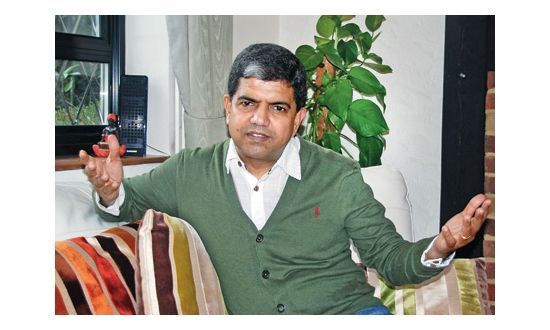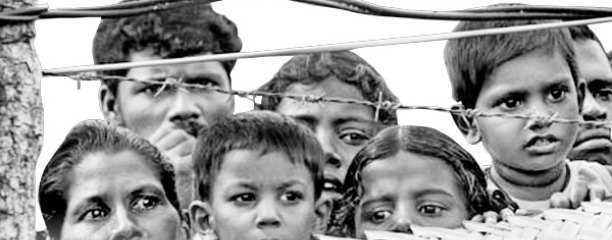It is doubtful whether the government has got its priorities right in respect of reconciliation, given the emphasis it has placed on matters pertaining to the Tamil diaspora.
Soon after the January 8 regime change, Foreign Affairs Minister Mangala Samaraweera had planned a diaspora festival to be held in December which was later put off indefinitely apparently due to possible protests by the southern nationalists. And now the government has removed 8 diaspora organizations and 267 persons from a list of 16 organisations and 424 persons including several Sinhalese and 30 women designated by the previous regime “in terms of the United Nations Security Council resolution 1373 which set out strategies to combat terrorism and to control terrorist funding.”
It is true that there is no set order in which the government has to pursue actions in search of much needed reconciliation. However, one cannot understand the urgency in removing these outfits and persons from the designated lists, given the complexity of matters related to the Tamil diaspora and the question as to what the local Tamil people are going to gain through this move. On the other hand there seem to be many burning problems faced by the Tamil people solving of which would better serve the purpose of reconciliation.
For instance, expediting the resettlement process and resolving land issues are two of them which even the Lessons Learnt and Reconciliation Commission (LLRC) had laid much emphasis on. Six years into the end of the war, many people in the North who had been displaced by the horror of the war and those evacuated by the State for want of land to establish High Security Zones during the war are yet to find houses of their own. There are thousands of women in the North as well as in the East who had been widowed by the effects of the war. Even the resettled people are living under appalling conditions in thatched huts which are hardly sufficient for a family to live. Unemployment is higher in the North than in other areas of the country as a result of the private sector having not rooted in those areas.
In the light of this situation the move by the government to release those Tamils, who had been arrested during the war under the notorious Prevention of Terrorism Act (PTA) and detained for years, some even without charges, is significant, since many families in the North and East are presently women headed because the bread winning men in those families have been incarcerated. Large tracts of cultivable lands that were taken over by the security forces during the war have still to be released to their owners. These are the real problems the Tamil people are currently facing.
The previous government when designating 16 organisations including the LTTE and 424 persons in April last year stated that it was done after a long drawn out perusal of the activities of these entities and men. But it had later transpired that there were names of defunct organizations and people who had died long ago that had been included in those lists. Besides, these entities and persons were designated long after the war ended, and not during the war when they were extremely active.
The then government also said: “The substantial effect of an order under this Regulation is that all funds, assets and economic resources belonging to or owned by the designated persons or entities remain frozen until they are removed from the designated list.” However, there were no indications of any asset belonging to these outfits or men existing in Sri Lanka and no reports of freezing of such assets. Also the Gazette notification that designated these entities and men was not valid outside the country.

Therefore, 19 months after the designation no organization or person seems to have been affected by it. On the contrary, organizations like Global Tamil Forum (GTF) regularly issued statements which were published in Sri Lankan newspapers and its accredited spokesperson Suren Surendiran has been invariably quoted by the media here even during the last government.
Fund raising in the name of the LTTE in Europe is reported to have drastically diminished, but not due to the listing of these organizations and persons, rather it was a direct result of the annihilation of the LTTE leadership by the security forces in 2009. Thus the effects of the designation are not clear except its possibility of prevention of well-known hardcore LTTEers from entering the country.
Diaspora groups are relatively extreme in their nationalistic as well as separatist views since they are not being challenged. This was clearly manifested by the speech made by the TNA leader R. Sampanthan at the 14th annual convention of the ITAK held in Batticaloa in May, 2012. He said: “The Diaspora must respect the political thinking of those living here. They must respect the courage with which they make decisions, and their ability to determine their own political destiny. The Diaspora must trust in the capabilities of the Tamil people living here.
The Diaspora’s political initiatives, and public statements on behalf of the Tamil people in Sri Lanka must not negatively affect the situation here; they must not prove to be obstacles to our efforts here. It is the efforts that are made by the people in Sri Lanka, which are made in accordance with the situation in Sri Lanka, and with sensitivity to this situation that will finally bring about concrete results for the Tamil Nation.”
Therefore placing too much of trust on the diaspora groups so early might lead to blunders and that might in turn hinder the other steps towards reconciliation. Already loyalists of the former regime, ironically, including those who agreed with the LTTE to find a solution to the ethnic problem under a federal structure, are hell bent to rouse communal feelings among Sinhalese using government’s reconciliatory moves, such as releasing of prisoners and land.
DM
